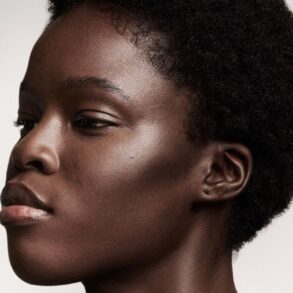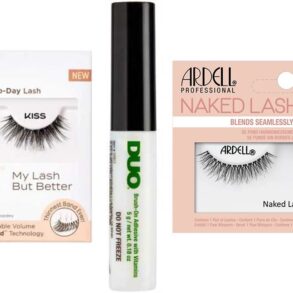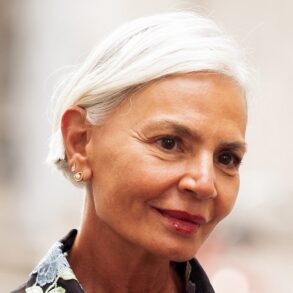The country music icon Dolly Parton once quipped, “It takes a lot of money to look this cheap.” Fans of the minimalist makeup brand Glossier might riff on this bon mot, noting that it takes a lot of effort — and a lot of skin-care products — to look so effortless. Founded in 2014 by New York fashionista and socialite Emily Weiss, Glossier (affectedly Frenchified to rhyme with “dossier”) soon established itself as synonymous with the increasingly popular “no-makeup makeup” look. The dewy women who grace the company’s advertising campaigns appear to be wearing no cosmetics, but somehow, expensively so.
Even the company’s Instagram captions take an aggressively casual approach, as veteran beauty journalist Marisa Meltzer explains in her astute dissection, “Glossy: Ambition, Beauty, and the Inside Story of Emily Weiss’s Glossier.” From the first, “the brand’s voice was that of your older sister — or, more accurately, the coolest friend who knew that trying too hard was antithetical to being cool,” Meltzer writes. Glossier was one of the first companies to pose as a confidant on social media, a strategy now as common as it is insidious. Copywriters were instructed to write the way they would speak, and the official Instagram account replied to delighted commenters with friendly emojis. Carefully curated storefronts contain mirrors bearing the phrase “You Look Good” — the kind of thing friends might say to one another in a dressing room.
“Beauty is inherently unfair,” Meltzer writes. “So, is makeup the equalizer?” Glossier made waves when it debuted because its answer was (and remains) yes. In an industry premised on convincing women that they are in want of laborious perfecting, it distinguished itself by its peppy insistence that its customers were perfect already. “I hope Glossier encourages women to be okay wherever you are. Just, everyone, relax!” Weiss told the audience at a corporate “fireside chat” in 2015. But why would you spend $19 on face wash or $34 on foundation if you were “okay wherever you are”?
Glossier has since fallen out of fashion — though it is still soldiering on, with a valuation of $1.8 billion as of 2021 — but for a time, it was an era-defining phenomenon, as big as the Spice Girls to a certain swath of millennial women. In addition to its canny social media prescience, it was an early adopter of a spare, neat aesthetic that has since become widespread in corporate branding — its signature shade was the delicate pastel now famously known as “millennial pink.” But above all, Meltzer argues, it embodied the contradictory demand of its moment: “On the one hand, it promoted inclusivity and acceptance, but it had to remain still aloof enough, cool enough, to be aspirational.” Like no-makeup makeup, it represented a bid for both approachability (“you can sit with us” was the company’s slogan when it launched) and exclusivity (somehow, the only people who ended up sitting with Glossier were the ones who looked like models).
Glossier billed itself as cosmetics for egalitarians, but there was never much of a market for such an oddity. People do not just want to be told they look good; they want to be told, if only implicitly, that they look better, even while they are congratulated for being virtuous enough to have renounced such petty ambitions. A Glossier girl dreams of a world without hierarchies — but one in which she still gleams and glimmers her way to the top.
Weiss has always favored projects that double as unconvincing demonstrations of her democratic bona fides. Glossier grew out of Into the Gloss, a beauty blog with a cult following that she founded in 2010, when she had a day job at Vogue. The site’s Top Shelf feature, in which Weiss interviewed celebrities about their beauty routines in their bathrooms, exuded what Meltzer describes as “the intimacy of doing someone’s makeup.” Among the interviewees were supermodel Karlie Kloss and media mogul Arianna Huffington. “The people the blog covered were chic,” Meltzer observes, “but what they talked about was accessible enough that it wasn’t hard to understand.”
Weiss tried her best to project accessibility, too. “She presents this air of being a normal person,” one source told Meltzer. “In reality, she’s not a normal person. She’s a very well-connected founder who is worth several million dollars.” In the course of the four interviews Weiss granted Meltzer for this book, she displayed what the author describes as “an almost irresponsible drive to show how little she worked to get where she is, but at the same time will bristle at your saying she is privileged.” When Meltzer asked her how she felt when Glossier became a “unicorn” company — a privately held start-up valued at $1 billion or more — Weiss shrugged off her success, replying, “It’s kind of like back to business, that’s how I feel.”
If Glossier is the TED Talk of makeup, Weiss has come to resemble her product: exaggeratedly unobjectionable, vaguely empowering in an anodyne and eminently marketable way. If someone put every myth about girl bosses into a blender and served the resulting smoothie in a cafe renowned for its avocado toast, the result would be Emily Weiss. Meltzer reports that she organizes her books, all of them gruelingly inspiring business memoirs, by color, and that she posts proclamations of “broad support of reproductive rights” alongside vacation selfies on her Instagram. Her most eccentric hobby, astrology, is also the passion of her generation, and she speaks in the vacant clichés of a horoscope designed to apply to everyone. At one event, she responded to a question about “good advice” by urging the audience to “try things, it’s going to help you grow and learn, you know, learn something, learn something about yourself.” Meltzer tries in vain to get her to say something — anything! — less phatic.
But there was a time when she stood out, at least for her elegance and her eye. She came of age in Wilton, Conn., one of the richest and preppiest enclaves in the state. In a town of lacrosse players, she cultivated an idiosyncratic personal style: On the first day of sixth grade, she arrived “in an outfit modeled after Alicia Silverstone’s character Cher Horowitz in the movie ‘Clueless.’” After a stint as a teen model, she went to New York University and secured a coveted internship at Teen Vogue. From there, she worked at a series of fashion magazines. Her peers from that time remember her as impeccably dressed and poised, possessed of a certain je ne sais quoi. But je sais, or at least je suspecte, that the mysterious “quoi” is just a potent brew of wealth and cultural capital: As Meltzer writes, “The kinds of people who could advance at magazine jobs were the ones who could work for free or very little” and yet still show up to work in Balenciaga heels.
“Glossy” has been billed as an exposé, but it turns out there is not much about Glossier to expose. Aside from the usual errors of management (a cliquey culture, a line of colorful makeup that fizzled), Glossier’s brush with scandal was fairly mild, at least compared with the protracted, sensationalistic disasters that dogged and ultimately sank the likes of Theranos and The Wing. In 2020, an anonymous Instagram account called @outtathegloss alleged that Glossier’s retail employees of color faced racism in the company’s stores. “Concerns included managers mixing up names of employees, low pay, that they weren’t taken seriously,” Meltzer writes. Glossier responded by creating a Grant Initiative for Black-Owned Beauty Businesses and donating $1 million to organizations fighting for racial justice — and the crisis blew over. “Glossy” is well worth reading not because it contains any especially juicy revelations, but because Meltzer is such a smart skeptic of Glossier’s myth and such a sharp analyst of the ways in which the brand is a barometer of broader trends.
What accounts for Glossier’s cult status at its height? Not, Meltzer suggests, the quality of the makeup. The company put out a few beloved classics, such as the Milky Jelly Cleanser face wash and the Boy Brow eyebrow pomade, but industry insiders grumbled that these formulas were derivative. Yet “what makes a product successful,” Meltzer clarifies, “is a combination of performance, price, marketing, and packaging. Is there a perceived sense of prestige? Are cool and influential people wearing the brand? Because, frankly, there’s not a great deal of difference on a chemical or ingredient level between many products.” Glossier succeeded because it managed to convert itself into a social signifier. To buy its products was to proclaim oneself an It Girl without acquiring any of the stigma of snobbery.
But Meltzer speculates that the era of Glossier may be coming to an end. Weiss stepped down as CEO in May 2022, not long before the birth of her daughter, and the brand has since suffered a decline in popularity. Its slow descent into irrelevance is no doubt in part a product of a backlash against female founders, which Meltzer documents, but it might also result from exhaustion with the ethos of understatement and nonchalance. For all Glossier’s talk of acceptance, I would rather acknowledge what I’m buying when I buy makeup. The promise of beauty products is the utopian promise of a different face, a different flesh, a different life. I want nothing to do with no-makeup makeup or the fantasy of drab self-acceptance it implies. Only a new world, and the glitz of MAKEUP makeup to go along with it, for me.
Becca Rothfeld is the nonfiction book critic for The Washington Post.
Ambition, Beauty, and the Inside Story of Emily Weiss’s Glossier
By Marisa Meltzer
One Signal. 293 pp. $28.99
This post was originally published on this site be sure to check out more of their content.








